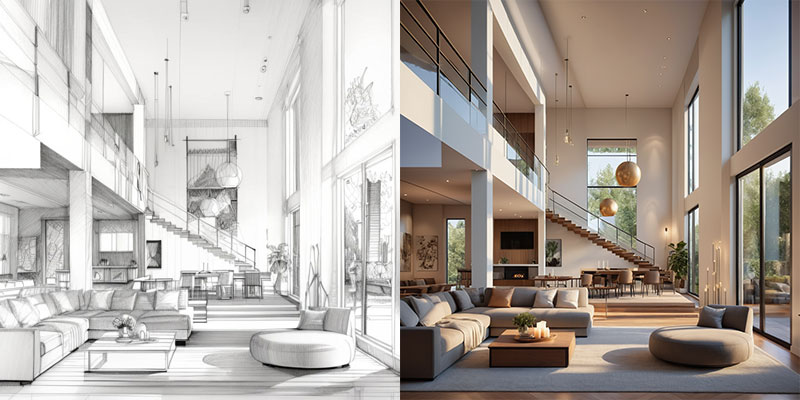邀请朋友,双方都获得免费金币
5621
Azmi Shajahan
AI图⽚⽣成
v2
Interiors the Renaissance characterized by elegance, symmetry, and classical antiquity. Inspired by ancient Roman and Greek architecture, Renaissance interiors emphasized proportion and order, often arranged to reflect idealized geometric forms. High ceilings, grand staircases, and symmetrical room layouts became common, contributing to a sense of harmony and balance. Decorative elements were lavish and detailed, with frescoes, tapestries, and ornate moldings adorning walls, often depicting mythological or religious themes. Furniture became more refined, with pieces like intricately carved cabinets, chairs, and tables crafted from dark, polished woods. Opulent fabrics, such as velvet, silk, and brocade, were used for draperies, upholstery, and bed canopies, adding richness and texture to the spaces. Large windows, often framed with carved stone, brought in natural light, while chandeliers and candelabras provided artificial illumination, casting a warm glow over the richly decorated rooms. Overall, Renaissance interiors embodied the cultural shift towards humanism, blending artistic sophistication with classical beauty. use all sapien colours to generate a spacious space
比例:
1:1
0
一键同款
jorge eduardo
2024-11-2
Excelente trabajo
回复

1
喜欢举报
5621
Azmi Shajahan
AI图⽚⽣成
v2
Interiors the Renaissance characterized by elegance, symmetry, and classical antiquity. Inspired by ancient Roman and Greek architecture, Renaissance interiors emphasized proportion and order, often arranged to reflect idealized geometric forms. High ceilings, grand staircases, and symmetrical room layouts became common, contributing to a sense of harmony and balance. Decorative elements were lavish and detailed, with frescoes, tapestries, and ornate moldings adorning walls, often depicting mythological or religious themes. Furniture became more refined, with pieces like intricately carved cabinets, chairs, and tables crafted from dark, polished woods. Opulent fabrics, such as velvet, silk, and brocade, were used for draperies, upholstery, and bed canopies, adding richness and texture to the spaces. Large windows, often framed with carved stone, brought in natural light, while chandeliers and candelabras provided artificial illumination, casting a warm glow over the richly decorated rooms. Overall, Renaissance interiors embodied the cultural shift towards humanism, blending artistic sophistication with classical beauty. use all sapien colours to generate a spacious space
比例:
1:1
0
一键同款
jorge eduardo
2024-11-2
Excelente trabajo
回复



























